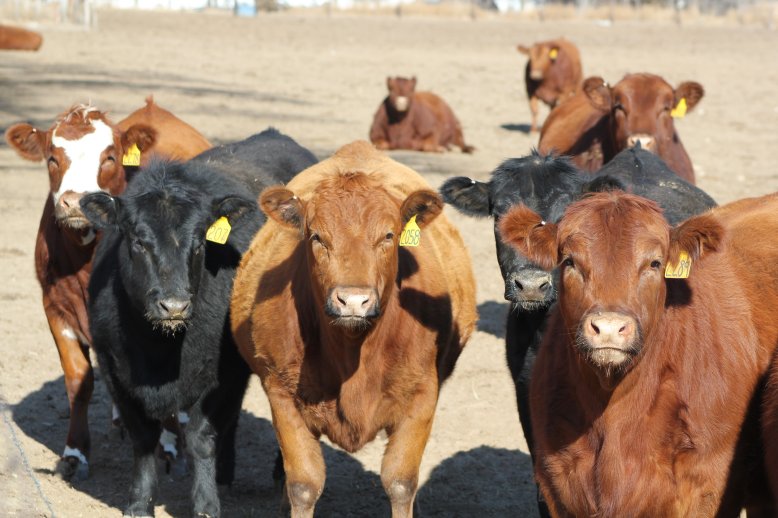
By Rob Eirich, UNL Extension Educator/Nebraska Director of BQA
Since beginning my role as the Nebraska Director of Beef Quality Assurance (BQA) in July, I have been studying and gathering information on the National Cattlemen’s Beef Association (NCBA) Assessment Guides and third party audits in the beef industry. Assessments and audits are becoming a part of doing business in beef cattle production, as we are seeing beef processors implementing third party audits. Audits are not new and have been an element of many branded products in the past as a verification tool. Nebraska Cattlemen, Nebraska BQA, and the National Cattlemen Beef Association (NCBA) are not implementing or endorsing these audits, but are educating and preparing beef cattle producers for these verification practices.
Let us define assessment and audit by dictionary terms. Assessment is the act of appraisal or evaluation. Audit is the act of officially examining for verification. With these definitions I will outline their implementation in the beef industry.
The first question beef cattle producers may have is “Why?” To answer this question I will use the 2011 National Beef Quality Audit (NBQA). The significant findings of the 2011 NBQA show that when today’s consumers purchase beef products they want to know “How and where the cattle were raised.” These same consumers are concerned with food safety and eating satisfaction. Packers, foodservice, and retailers are looking for a verified, creditable supply to meet the demands of their consumers. Implementing third party audits will verify that producers use best management practices to insure the health, care, and well-being of the animals under their stewardship. For producers this is part of “product integrity” which shows their commitment to produce a wholesome, safe, and quality beef product each and every time for consumers.
What is involved in third party audits? The key elements of the audits include: BQA Training, site assessment, daily observation, facilities, animal handling/care, and process of euthanasia. BQA training for all persons working with animals is important to maintain the implementation of best animal care and management practices to insure animal well-being. In the site assessment, auditors will review all standard operating procedures, documentation, and records of the operation to ensure animal care is a high priority of production. Auditors will also observe daily routines of the operation including animal handling and care, processing, facilities, facility maintenance, feed processing, and feed delivery. These observations will be documented and evaluated to meet the guidelines set by audit documents. The guidelines are set by that organization asking for the third party audit and have been developed with best management practices in mind.
Can an operation fail an audit? The current answer is simply “No”, but there may be need for re-evaluation and corrective measures taken. The audits being implemented will be explained up front to all cattle suppliers before the audit occurs. The third party auditors will do the reviews and observations of the operation, then document the finds. The auditor will record results as 1) Acceptable (Meets Guidelines), 2) Needs Improvement (Requires Action), or 3) Unacceptable (Must Be Corrected). These findings will be reported and discussed with operation management. If there are any observations that do not meet the guidelines, management will be asked re-evaluate the standard operating procedures and make corrective changes to meet the required measures set by the audit documentation. It is a goal of the audits to help define the best management practices and educate suppliers in producing a high quality beef product for consumers.
How can we prepare for third party audits? NCBA and National BQA have developed BQA Assessment Guides for three segments of cattle production: Feedyard, Stockers, and Cow-Calf. The assessments can be found on the Nebraska BQA webpage at bqa.unl.edu . These assessments were developed incorporating sound animal care and production practices with proven science and research. The guides are an on-site educational tool that allow for assessment of animal care and well-being as well as operation facilities and conditions. The guides can be used as a self-assessment tool in developing a strategic plan, implementing standard operating procedures, and preparing documentation needed to meet guidelines of third party audits.
In conclusion, audits and assessment will become part of the routine for beef cattle suppliers, I am confident that Nebraska producers will meet the benchmarks set before them. As Nebraska becomes the Epicenter of Global Beef Production, Nebraska producers are passionate and dedicated to producing wholesome, safe, healthy, and high quality beef. Nebraska BQA is committed to educating and preparing beef cattle producers to meet the demands of today’s consumers.
For more information contact: Rob Eirich, Extension Educator/Director of BQA at reirich2@unl.edu or visit our webpage at http://bqa.unl.edu.